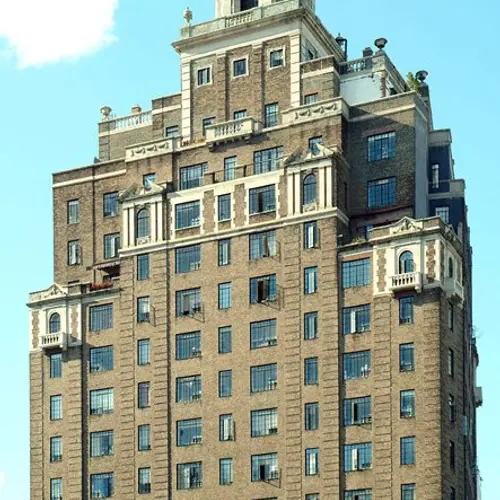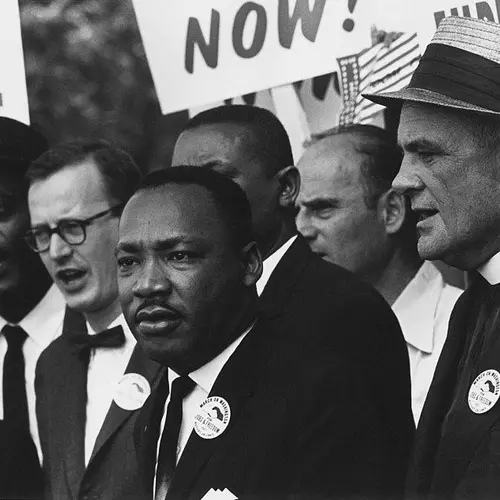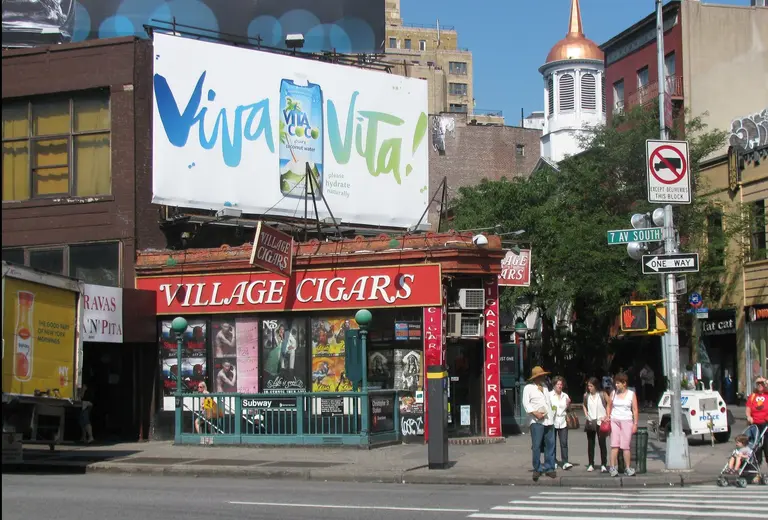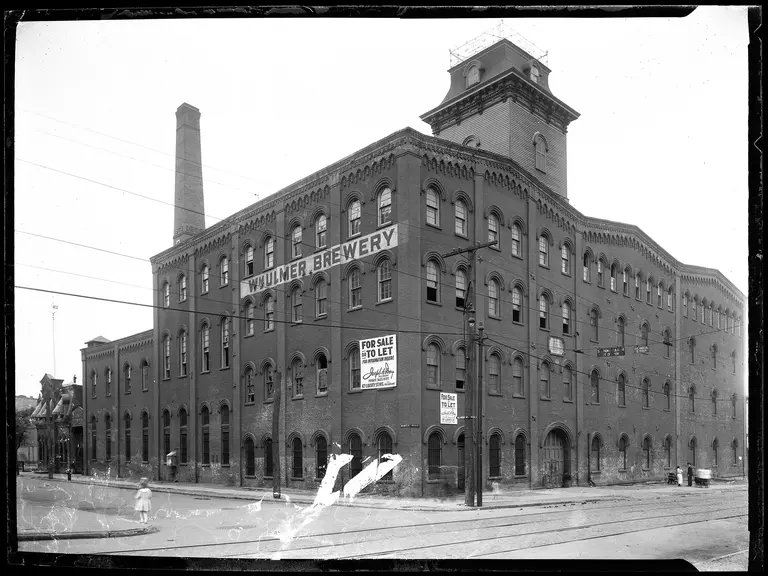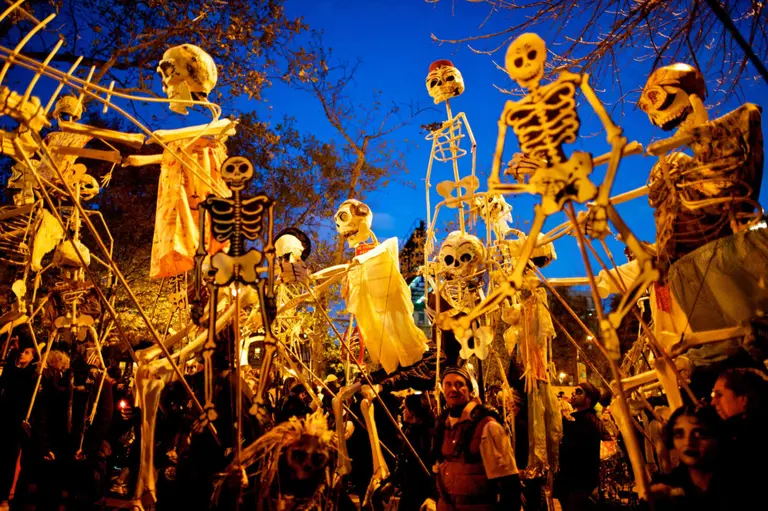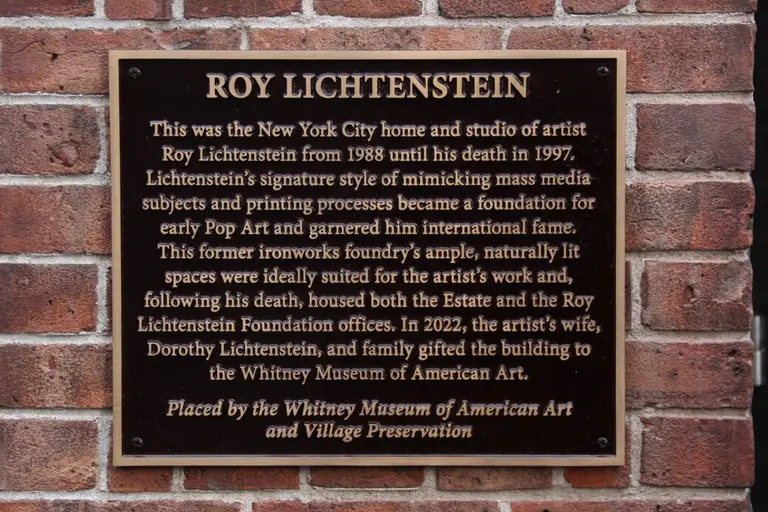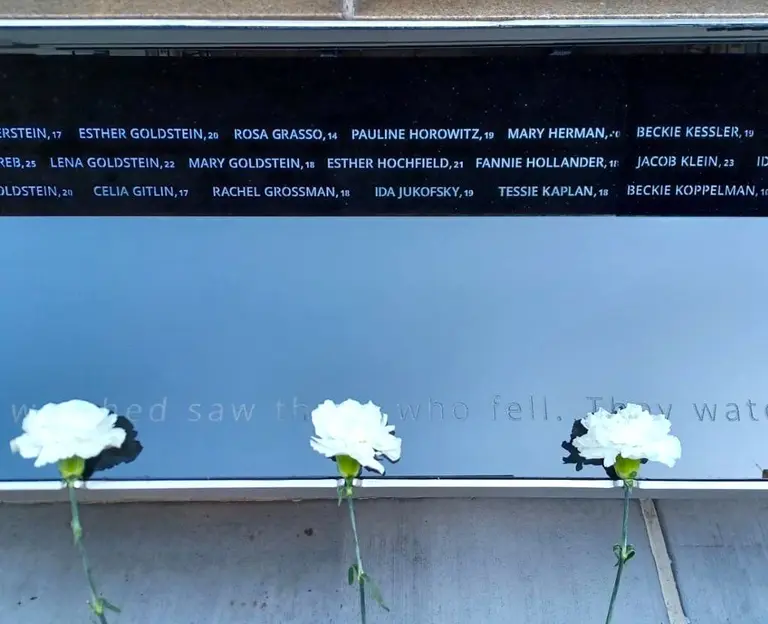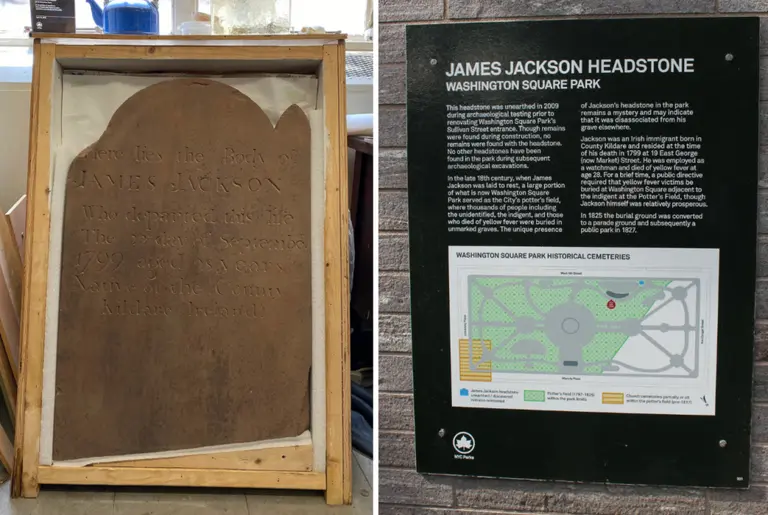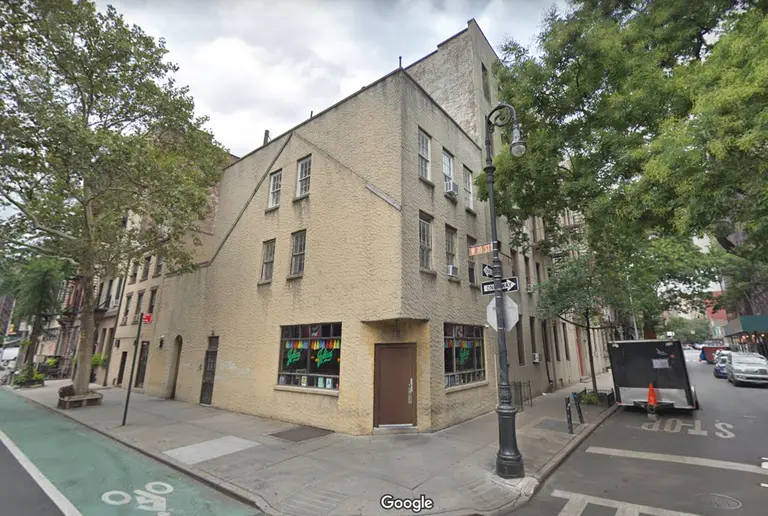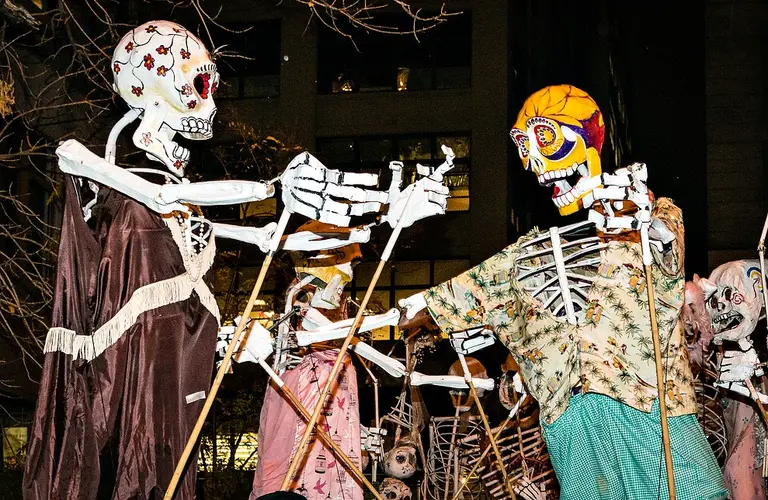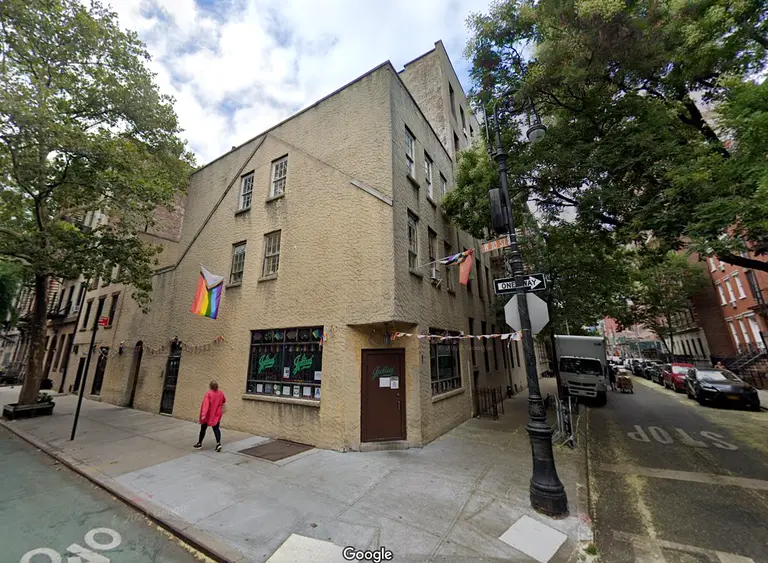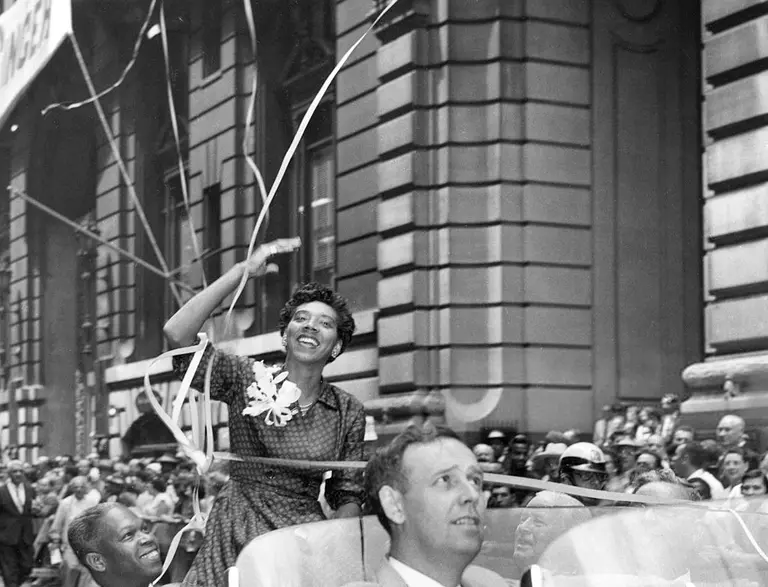How New Yorker Howard Bennet fought to make Martin Luther King Jr.’s birthday a national holiday
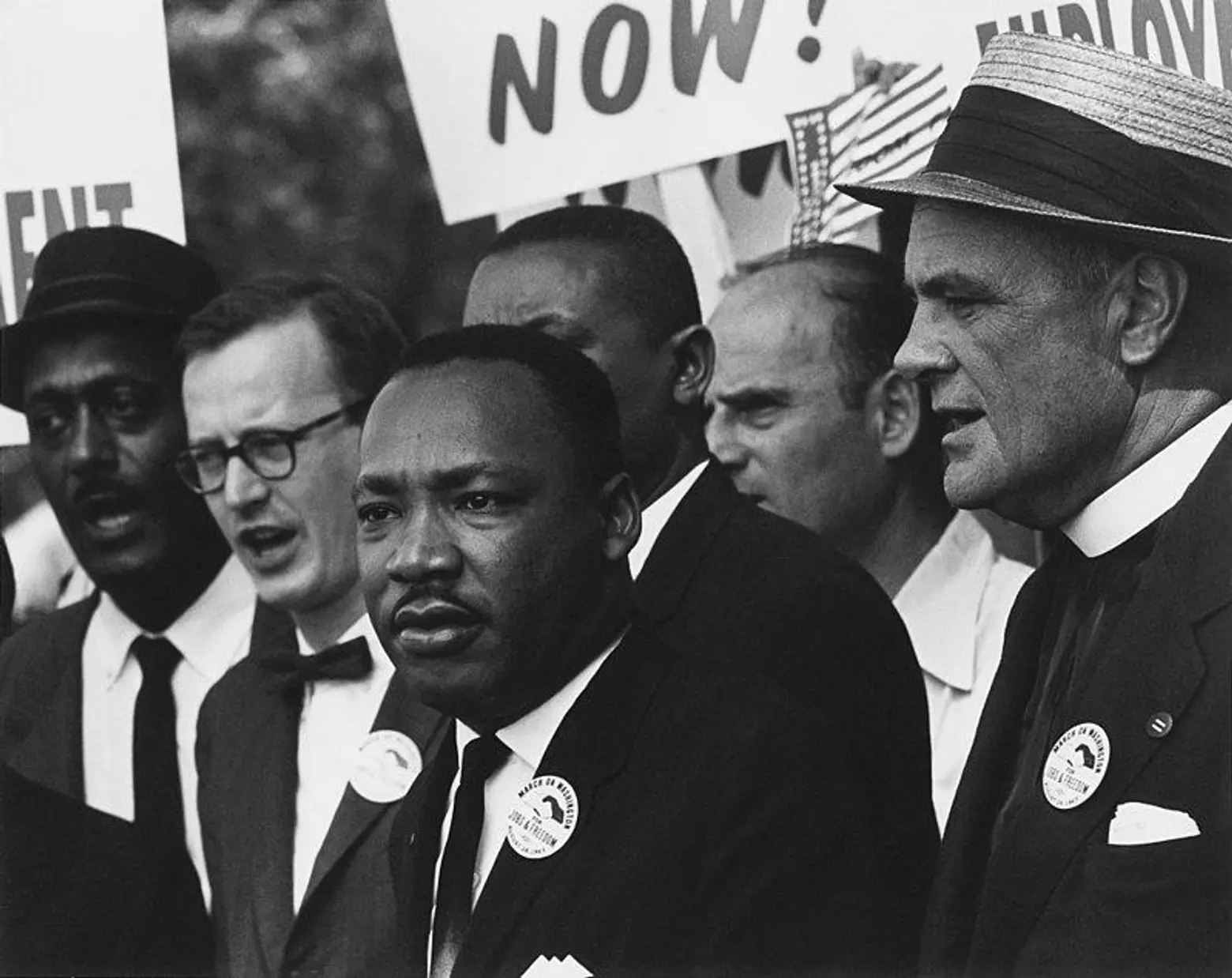
Martin Luther King Jr. at the 1963 Civil Rights March on Washington, D.C. via Wiki Commons
Fifty years ago, on April 4, 1968, Martin Luther King Jr. was shot as he stood on the balcony of the Lorraine Motel in Memphis, Tennessee. This ended the life of one of the 20th century’s most revered and influential figures. It also began a 15-year campaign to make Dr. King’s birthday a national holiday — the first-ever honoring an African American. That successful quest began with and was spearheaded by a native son of Greenwich Village, Howard Bennett. Bennett was one of the last residents of a Greenwich Village community known as “Little Africa,” a predominantly African-American section of the neighborhood which was, for much of New York’s history through the 19th century, the largest and most important African-American community in the city. That neighborhood centered around present-day Minetta, Thompson, Cornelia, and Gay Streets.
 Minetta Street, the center of “Little Africa,” 1925; photo via NYPL
Minetta Street, the center of “Little Africa,” 1925; photo via NYPL
According to New York City records, Howard Bennett was born in 1911 in Greenwich Village, one of 16 brothers and sisters. It’s not clear how long Bennett spent in Greenwich Village; it is known that he spent most of his adult life living in Harlem.
It appears that Bennet and his family moved northward at around the time that the last vestiges of the African-American community in this part of Greenwich Village were disappearing. As European immigrants began to stream into the Village beginning in the mid-19th century, the African-American community was gradually pushed north. By the late 19th century, the Tenderloin section of Manhattan (now Chelsea and Hell’s Kitchen) become the center of New York’s African-American community, though a significant black residential presence remained in the Village for decades.
Most of the last traces of that community were destroyed in the early 20th century. It was at this time that many tenements occupied by black Villagers and the main African-American church in Greenwich Village were demolished to make way for the construction of the IRT and IND subways and the southern extension of Sixth and Seventh Avenues, today’s Sixth Avenue below West 3rd Street and Seventh Avenue South. It was at this time that the center of New York’s African-American life also shifted to Harlem.
While we don’t know exactly when Howard Bennett moved from the Village to Harlem, we do know that as he grew up he became deeply embedded in the civic life of Harlem and in civil rights efforts. After serving in the Pacific Theater during World War II, Bennett became a leader of the 369th Veterans Association, the organization for members of the famous “Harlem Hellfighters.” He also served as Labor Chairman of the New York Branch of the N.A.A.C.P. and was a consultant and confidant of labor leader A. Phillip Randolph.
Bennett and several friends conceived of the idea of making Martin Luther King’s birthday a national holiday while returning from his funeral in Atlanta. After renting a storefront in Harlem, Bennett enlisted the help of a few dedicated grassroots activists and began gathering signatures on petitions.
In April 1970, along with William Byrd and other members of the 131st Street Block Association, Bennett presented six million signatures to Brooklyn Congresswoman Shirley Chisholm and Detroit Congressman John Conyers. Chisholm and Conyers introduced a bill to make King’s birthday a national holiday in Congress. According to Bennett’s writings, there was much resistance to the idea for many years, and not just by those who did not share Dr. King’s beliefs — he claimed that supportive members of Congress were hesitant to lend their names to the bill as well.
After a more than 10-year campaign, in 1979 Congress voted upon the proposed holiday, but it fell a few votes shy of passage. Unfortunately, Bennet died in 1981 before he got to see the full fruits of his labor. Though President Ronald Reagan initially opposed the bill, when it was passed by a veto-proof majority in both houses of Congress in 1983, he signed it into law on November 2 of that year. That made January 15 a national holiday in honor of Rev. Dr. Martin Luther King Jr.; since 1986, the holiday has been observed on the third Monday in January.
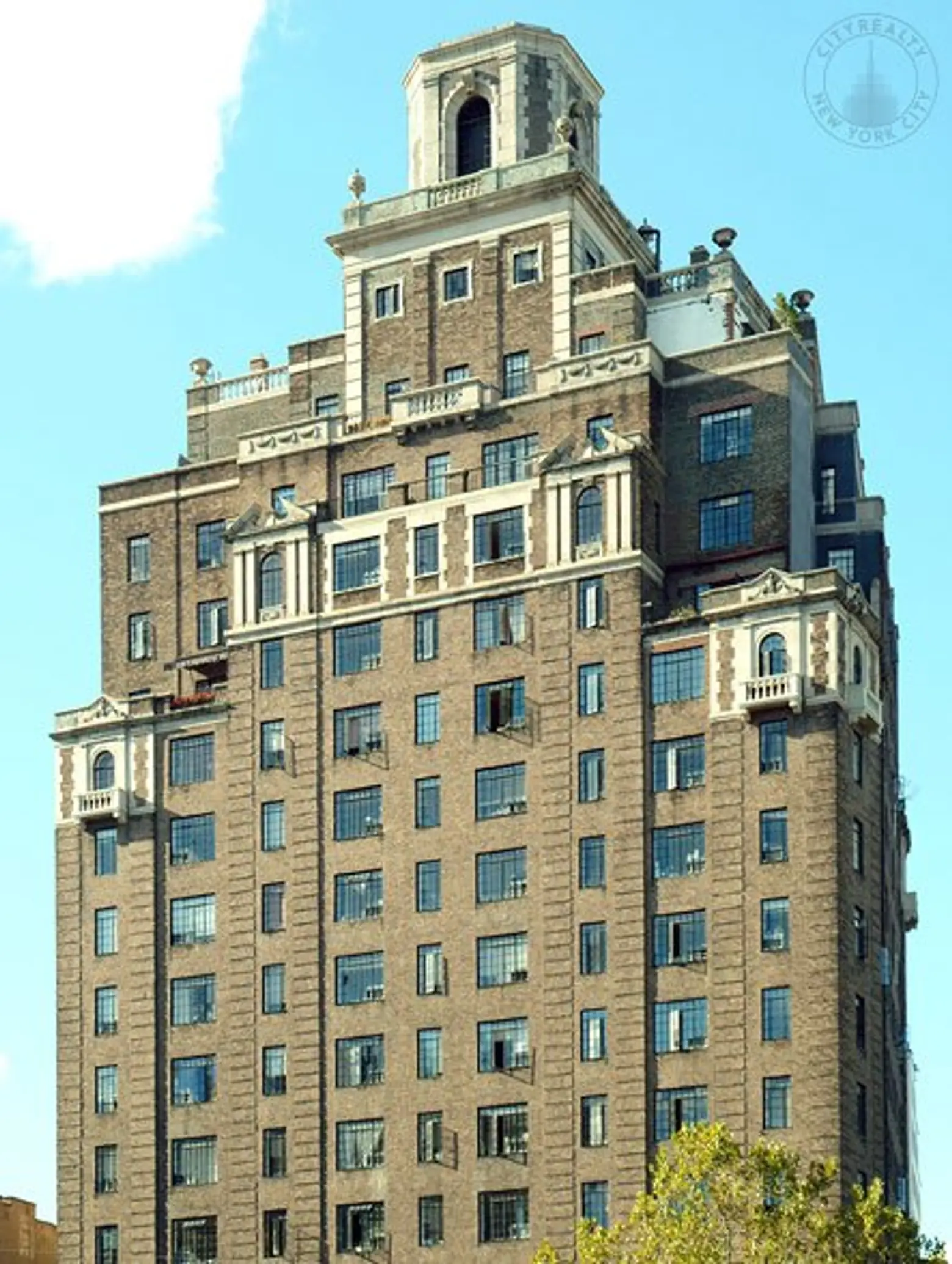 One Christopher Street, via CityRealty
One Christopher Street, via CityRealty
Based upon research conducted by GVSHP, we believe that Mr. Bennett and his family lived in a tenement at 11 Greenwich Avenue, just west of 6th Avenue. That and several neighboring buildings were demolished and replaced with the pre-war apartment building constructed at 1 Christopher Street in 1931, which remains on the site today. The location of 11 Greenwich Avenue was just north of Gay Street, which was known to have a large African-American population, and several blocks from Minetta Street and Lane and Thompson Street, which in the 19th century were the heart of Greenwich Village’s African-American community.
In spite of the significance of Bennett’s accomplishment leading the successful drive for the King Holiday, tributes to his work are scant. A small playground in Harlem, which was named in his honor, is one of the few public memorials to his efforts.
+++
This post comes from the Greenwich Village Society for Historic Preservation. Since 1980, GVSHP has been the community’s leading advocate for preserving the cultural and architectural heritage of Greenwich Village, the East Village, and Noho, working to prevent inappropriate development, expand landmark protection, and create programming for adults and children that promotes these neighborhoods’ unique historic features. Read more history pieces on their blog Off the Grid.
RELATED:

